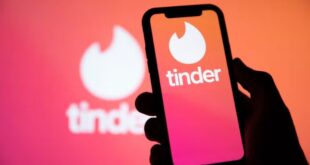The online entertainment industry has experienced a significant boom in recent years, with an increasing number of people turning to digital platforms for recreational activities such as listening to music, watching movies, or playing games. These platforms have evolved beyond just personal entertainment and have become social interaction hubs that offer real-time engagement with others.
Almost half of the people under 42 now spend more of their social time in the digital world than in real-world interactions. This change has resulted in a merger where dating, gaming, and entertainment are no longer separate entities.
Instead, they are integrating across these platforms, creating a unique convergence that is poised to shape the future of these industries. This shift raises critical questions about what this means for businesses and how they can adapt to these changing dynamics.
Intersection of Various Industries
In recent times, a significant overlap between the domains of dating and gaming has emerged. For instance, features like “Night In” on Bumble allow users to participate in games during virtual dates. Dating apps such as LOLO foster deeper relationships through icebreaker games and quizzes. Additionally, Magnet, an app proposes a novel dating game.
These apps have revolutionized the dating scene by integrating aspects like quizzes, timed matching, and virtual presents.
Dating firms are introducing gaming elements to their apps in their quest to create engaging experiences, thereby providing users with a more immersive environment. Similarly, the gaming sector is incorporating facets of dating and entertainment into its offerings.
Visual novel games like Dream Daddy and Monster Prom, though occasionally controversial, offer dating simulators where players can court virtual characters. It’s also increasingly common for online games such as World of Warcraft and The Elder Scrolls to include dating features, allowing players to combine gaming and dating within a single platform.
The entertainment industry is not being left behind, incorporating elements of gaming and dating into streaming platforms. Twitch, for example, lets gamers live-stream their gameplay, and community members can join in and influence the direction of the game. Some even utilize in-game polling and mini-games to interactively engage their audience, with instances of users tying the knot through the platform.
The advent of VR experiences has resulted in the merging of music concerts with social interaction. Platforms like VRChat and Sansar empower users to design their avatars and enter virtual realms where they can experience live concerts, interact with other users, and go on virtual dates.
These innovative experiences offer fresh avenues for socializing and entertainment, catering to users who are seeking immersive and creative escapes from the limitations of the physical world.
Significance of This Intersection for Companies
By integrating interactive elements into their offerings, businesses have found a way to engage their customers for extended periods. This strategy not only enhances brand loyalty but also improves customer retention.
For instance, our company has experienced an increase in app usage duration after incorporating gaming features. Moreover, this merging of industries allows businesses to tap into the power of social connections.
As human beings are inherently social, creating a communal atmosphere and shared experiences significantly bolsters engagement and fosters enduring relationships. Platforms like Twitch exemplify this by successfully creating spaces where people can connect over common interests.
Furthermore, platforms that combine elements of dating, gaming, and entertainment have the unique advantage of appealing to a diverse audience. This broadens their reach and potential customer base, especially relevant for dating apps with a large user base. This amalgamation of industries also opens up new avenues for monetization.
It empowers sector-specific platforms to introduce a variety of paid features and incentives, ensuring sustained customer engagement and investment. Businesses can also expand their revenue sources through strategies like in-app advertising and cross-promotion.
In addition, this convergence provides businesses with the opportunity to diversify their offerings. For instance, Zoosk has launched Lively, a separate platform dedicated solely to live streaming. Similarly, Badoo, a popular dating app, has introduced Badoo Live. Such diversification allows businesses to cater to different user segments and create additional revenue streams.
Lastly, the integration of industries can provide businesses with a wealth of data, which can be instrumental in crafting targeted marketing campaigns and personalized in-app experiences. Fortnite, for example, uses in-game analytics to design tailored challenges for its users.
The convergence of these sectors, therefore, offers numerous benefits for businesses, from enhanced customer engagement and diversified offerings to novel revenue channels and improved data analytics.
Envisioning the Future Landscape
The future amalgamation of dating, gaming, and entertainment industries is poised to be shaped by various factors such as technological advancements, societal norms, and user preferences. With technology continually evolving, we can expect more complex and engrossing experiences that seamlessly blend our digital and physical existences.
This fusion brings forth a promising future, but it’s not devoid of challenges that businesses need to acknowledge and address proficiently.
One such challenge is the handling and protection of user data, which has become a paramount concern for both consumers and regulatory bodies. Businesses must understand their legal responsibilities and adopt stringent measures to safeguard personal information.
Moreover, there are growing concerns about the potential negative impact on users’ mental and emotional health. Experts in the field of mental health warn that certain practices, like the gamification of dating, could negatively affect users’ opportunities to find meaningful relationships.
As these industries converge, they present a unique mix of opportunities and challenges. It’s crucial for companies within the dating, gaming, and entertainment landscapes to stay updated with these trends and deeply understand their consumers’ needs and wants. By doing so, these sectors can fully capitalize on these opportunities and enhance their chances of success.
 khamush.com Lifestyle | Motivation | Poems
khamush.com Lifestyle | Motivation | Poems



